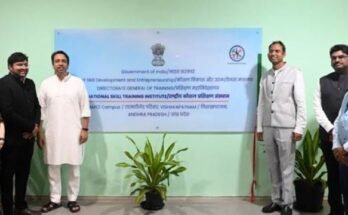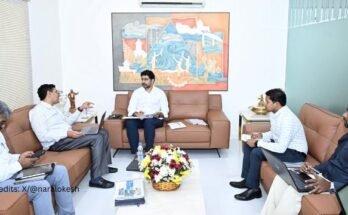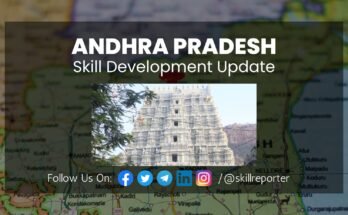Mahita is a non-profit social development organization working in the states of Telangana and Andhra Pradesh in southern India. Established in 1994 Mahita has specific interventions for children across both the states, particularly the girls empowering them through education and vocational trainings. Since the inception, the organization has adopted the right based approach to work towards socially just and empowered society. The organization is creating opportunities to poor and marginalized with special focus on girls for their development with dignity and respect. Mahita consists of team of social scientists with substantial experience in gender, education, human rights, livelihood and humanitarian work. Mahita strongly believes that the community participation is the essential part of any right based approach and that leads to the social transformation, and this philosophy is implementing the organization in all its programme areas.
INTRODUCTION OF THE PROGRAMME:
The Girls Advocacy Alliance (GAA) is a global initiative of Plan International – Plan Netherlands, Terre des Hommes – Netherlands and Defence for Children – ECPAT Netherlands. In India, Plan India is implementing the project in Andhra Pradesh and Telangana in partnership with Mahita. The project primarily advocates for addressing Child Marriage and Child Trafficking, and in promoting Secondary Education among girls and Job Oriented Vocational Training (JOVT) for young women in both the states- by addressing 4 key actors i.e Communities, Civil Society Organizations (CSOs), Government and Private Sector. GAA program has been implementing in 6 districts in Telangana (Hyderabad, Vikarabad, Gadwal, Yadadri, Adilabad and Sangareddy) and 3 districts in Andhra Pradesh (Kurnool, Visakhapatnam and Krishna). The programme closely works with Community, NGO/CSOs, Government and Private Sector in bringing the desired change.
Introduction
Vocational education prepares people to work in various jobs, such as, traders, technicians or craft person. It helps students to gain skills and find better employment opportunities. The government of India has initiated skill development program called “skill India” which aims to train over 40 crore (400 million) people by the year 2022 in India. However, the government has not regulated the vocational courses in schools. This has resulted in major gap between the supply and demand of skilled manpower. The shortage of skilled workforce has resulted in increase in number of unemployment. Another obstacle for skill india program is lack of awareness about the government-run skill development programs among the general public, particularly among youth. According to a study, “Young India and Work” conducted by Observer research Foundation and World Economic Forum about 70% of Indian youth are unaware of these government schemes. Another study by International Growth Centre, says, vocational courses are leaving behind women; less than 25% of women are employed in their skilled job for more than three months and are less likely to receive and accept job offers than men.
Rationale
India is a developing economy with a population of 1.2 billion and the average age of its population is estimated to be within 29 years. By the year 2022, it is also estimated that India will have the maximum number of working age population in the world. Over the past few decades, India has seen a consistent economic growth. In order to sustain this economic growth there is a need for skilled workforce. A lot of initiatives have been initiated by the respective governments to develop the skills, but these initiatives has been plagued by multiplicity of agencies and duplication of effort[1]. To address these issues, the Prime Minister Shri. Narander Modi in June 2014 has created a first ever separate Ministry for Skill Development and Entrepreneurship to promote skill development and entrepreneurship. He also launched Skill India program to meet the demands of the market by providing skills to 400 million people by the year 2022. As per the Skill India Annual Report 2017-18, 39.81 lakh people were trained under various courses and more than 60% of the certified candidates from across the country were placed. Over the years, through Skill India program has empowered 35.56 lakh women through skill training and transforming their lives.
Both Andhra Pradesh and Telangan states pride upon being the knowledge and technology hub and has a vision of becoming a developed states by 2029 where people have equal opportunities and dignified livelihoods to prosper through inclusive, sustainable, socioeconomic growth and remain safe, healthy, and competitive.
To achieve this both the states have been spending on education and vocation training programs through government schemes and private sector Corporate Social Responsibility programs.
According to a Report by National Skill Development Corporation, both Andhra Pradesh and Telangana states have combined estimated manpower demand of 47.86 lakh by 2022. Despite the spending through various skill development program by the government of India and private sector spending in form of CSR in education and vocational trainings, there is a huge skill gap despite in both the states of Andhra Pradesh and Telangana. This shortage of skilled workforce has led to increase in number of unemployment. The below table shows the estimated human resource skill gap in both the sates.
Refer SkillReporter (www.SkillReporter.com) for skill development and The Edupress (www.TheEduPress.com ) for education related important News, Tenders, RFP, Jobs, EOI, Events, Announcements, Circulars, Notices and other useful updates. Content also shared on Facebook Twitter Linkedin
The reasons are plenty for the huge gap in skills among the youth of the country despite many initiatives by the government. According to a report, various vocational training programs under the aegis of Skill India are not reaching the target population especially young women, 70% of Indian youth are unaware of the government schemes, not much information is available on how well these programmes address specific constraints to women’s participation, and there is little evidence of the efficiency of vocational training programs (McKenzie, 2017). Hence, there is a need for speedy recognition of skill development promotion to suit the needs of the industry.
In view of this, Mahita-Plan through its notification No: GAA/JOVT /2019/Mahita-Plan Dated:24th April, 2019 is inviting Research Organisation to submit a proposal on analysing the JOVT programs in the states of Andhra Pradesh and Telangana from the perspective of young women – access, availability, affordability, utility, challenges and solutions. This proposed analysis shall emphasise the need to support girls – finance, employment, life skills and social support strategies. It will bring out the reasons for exclusion of girls from their economic advancement due to the inadequate policy frameworks and inequitable gender norms. It will also focus on bringing out the challenges such as access, availability, affordability, utility etc., and has to bring solutions/strategies to the table which will be worked out by the Plan India-Mahita to support the policy makers to consider the girls and young women while preparing the holistic plans and they can be fitted into the eco-system of skilling.
Objectives:
To present a skill gap analysis of government and privately run JOVT/ skill development courses for young women in rural and urban AP & TS.
To identify barriers faced by young women in availing the skill development / JOVT courses in terms of- accessibility, availability, affordability and its usefulness in getting jobs etc in AP & TS.
To highlight areas for immediate action in furthering the skilling agenda for young women in AP & TS.
Expected Outcomes: Separate reports for AP and TS providing specific recommendations on strategies and solutions for adoption by government and corporates in furthering JOVT/ skilling of young women for their economic empowerment in AP & TS.
In line with the above objectives, Mahita is inviting reputed research organizations to take up a time bound in depth study with technically sound research and sample framework. Interested organizations are requested to submit their technical proposal along with financial proposal (In duplicate in a separate envelops – two copies of technical proposal in a sealed envelope and two copies of financial proposals in another sealed envelope and keep both the envelops together in one envelopand send it to The Program Director, Mahita through registered post.
Qualifications, Language and specialized knowledge/experience required:
The research organization should have at least 8-10 years’ experience in child focused research, process documentation and evaluations. A good understanding of children’s issues in the wider social development and human rights perspective will add value. Experience of working in Telangana and Andhra Pradesh will be valuable. The organization should have a team that understands the issues to accomplish the tasks in time and as required.
The organization should have excellent English language writing and editing skills, appropriate technical expertise in field research, sustainable capacity and analytical skills to ensure the quality in research and outputs.
At least 2 samples of research work similar to Job Oriented Vocational Training undertaken by the proposed team must be submitted along with the bid.
Key dead lines:
Submission of Technical and Financial Proposal – 10-05-2019
Opening the bids – 15-05-2019
Final selection – 20-05-2019
Selection Procedure:
Project core team in Mahita and Plan India will evaluate the technical proposals on following criteria. Once the organization is shortlisted based on technical proposal, the core team will call three selected organizations and open the financial bids. For technical proposal 75 marks and for financial proposal 25 marks are fixed for evaluation.
Selection of the organization is purely based on competencies to take up the study. For Application Formats and Evaluation matrix, Click Here
Address to send the proposals:
Ramesh Sekhar Reddy.P
Program Director – Mahita
H.No.12-13-484/21,
Street NO.1,
Tarnaka,
Secunderabad-500 017
Ph: +91-40-27151858



